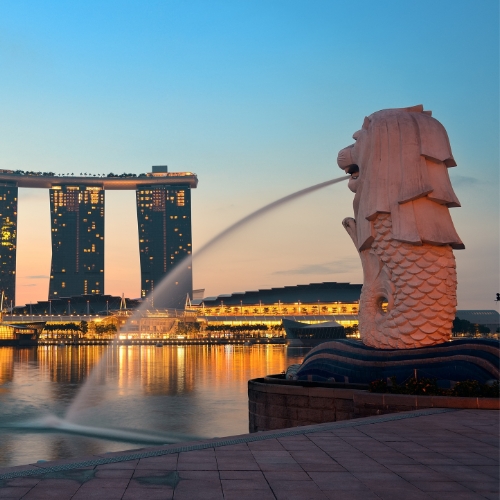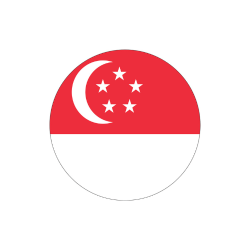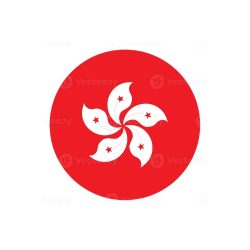APAC Country Resources
India: Country Resources
Currency:
Indian Rupee (INR)
Capital:
New Delhi
Language:
Hindi | Marathi | Kannada +
Ease of doing Business
Easy
Population Size
1.375B
VAT
18% general rate
About India
India, an ancient civilisation with a rich tapestry of religions and cultures, spans 29 states and 7 union territories. As a member of the BRIC countries, India boasts a rapidly developing economy, averaging 7% growth over the last two decades. Key industries include information technology, textiles, pharmaceuticals, and agriculture. Its skilled and innovative workforce is a major growth driver. Governed by a robust constitution since 1950, India fosters entrepreneurship and industrial expansion, playing a significant role in shaping global economic trends and labour markets.

Go global in India
Our multinational clients trust us to take care of international payments and compliance for employees, contractors and freelancers working in India.
You can use our Employer of Record (EoR) service to employ your team via our legal entity – onboarding your Top Talent quickly and with ease.
Experience our world class service – for your business and your team.
We are currently updating our website with our expert local knowledge, please contact us for more info.
India has several public holidays that vary by state and region. National holidays include Republic Day (January 26), Independence Day (August 15), and Gandhi Jayanti (October 2). Additionally, there are numerous religious and regional holidays, such as Diwali, Holi, Eid, Christmas, and regional New Year celebrations like Pongal, Baisakhi, and Onam.
Salary and compensation in India are governed by several key statutes including the Payment of Wages Act 1936, the Minimum Wages Act 1948, and the Payment of Bonus Act 1965. These laws regulate the timely disbursement of wages, establish minimum wage rates, and mandate bonus payments. Employers must ensure compliance with these regulations, providing fair compensation for work performed.
Employees in India are entitled to various types of leave, including:
- Annual Leave: Generally, 12 to 21 days of annual leave that can be accumulated or carried forward up to a statutory cap.
- Sick Leave: Typically ranges from 12 to 15 days per year, depending on state laws.
- Casual Leave: Often between 7 to 10 days per year, non-accumulative.
- Maternity Leave: Up to 26 weeks of paid leave for female employees under the Maternity Benefit Act 1961.
- Paternity Leave: Limited provisions, often around 15 days.
- Other Leave: Includes leave for national and festival holidays, bereavement leave, and leave for personal emergencies.
Employment in India can be terminated for several reasons, including redundancy, underperformance, misconduct, superannuation, and ill health. Notice or pay in lieu of notice is required unless termination is due to misconduct. In cases of misconduct, termination must follow a disciplinary inquiry conducted according to the principles of natural justice. Additionally, employees on maternity leave or those involved in the adjudication of an industrial dispute cannot be terminated.
Mandatory insurance provisions for employees in India include:
- Employees’ Provident Fund (EPF): A social security program requiring both employer and employee contributions.
- Employees’ State Insurance (ESI): Provides health insurance and social security for workers earning below a certain threshold.
- Gratuity: Employers are required to provide gratuity insurance to cover their liability to pay gratuities to employees upon termination of employment after five years of service.
Singapore: Country Resources
Currency:
Singapore Dollar (SGD)
Capital:
Singapore
Language:
Malay | Tamil | English | Singaporean Mandarin
Ease of doing Business
Very Easy
Population Size
5.637M
VAT
7% (Goods and Services)
About Singapore
Singapore is one of the world’s most business-friendly economies, offering a stable, transparent, and highly efficient environment for companies to grow. With low corporate taxes, a strong legal framework, and extensive trade agreements, it provides a seamless gateway to Southeast Asia’s fast-growing markets. The city-state is a global leader in financial services, technology, and logistics, supported by world-class infrastructure and a government committed to innovation and digital transformation. Its skilled, multilingual workforce and ease of doing business make it an ideal destination for multinational corporations and startups looking to scale in the region.

Go global in Singapore
Our multinational clients trust us to take care of international payments and compliance for employees, contractors and freelancers working in Singapore.
You can use our Employer of Record (EoR) service to employ your team via our legal entity – onboarding your Top Talent quickly and with ease.
Experience our world class service – for your business and your team.
We are currently updating our website with our expert local knowledge, please contact us for more info.
Singapore has a variety of public holidays that reflect its multicultural society. National holidays include New Year’s Day (January 1), National Day (August 9), and Labour Day (May 1). Additionally, there are numerous religious and cultural holidays such as Chinese New Year, Hari Raya Puasa (Eid al-Fitr), Deepavali, Vesak Day, and Christmas. Each holiday celebrates the diverse ethnic and religious groups in Singapore, contributing to the country’s rich cultural tapestry.
Salary and compensation in Singapore are governed by several key regulations including the Employment Act, the Employment (Part-Time Employees) Regulations, and the Retirement and Re-employment Act. These laws ensure the timely disbursement of wages, establish minimum entitlements, and provide guidelines for salary deductions and variable payments. The Employment Act mandates that employees must be paid at least once a month and within seven days after the end of the salary period. It also specifies provisions for overtime pay, rest days, and annual leave. Additionally, the Retirement and Re-employment Act requires employers to offer re-employment to eligible employees upon reaching retirement age. Employers must ensure compliance with these regulations to provide fair and equitable compensation for work performed.
- Annual Leave: A minimum of 7 to 14 days of annual leave, depending on the length of service, as mandated by the Employment Act.
- Sick Leave: Up to 14 days of paid outpatient sick leave and an additional 60 days of paid hospitalisation leave per year, provided the employee has worked for at least 3 months.
- Maternity Leave: Up to 16 weeks of paid maternity leave for eligible female employees under the Employment Act and Child Development Co-Savings Act.
- Paternity Leave: 2 weeks of paid paternity leave for eligible fathers under the Child Development Co-Savings Act.
- Childcare Leave: 6 days of paid childcare leave per year for parents of children under 7 years old, and 2 days per year for parents of children aged 7 to 12, as stipulated by the Child Development Co-Savings Act.
- Adoption Leave: 12 weeks of paid leave for mothers who legally adopt a child below 12 months old, under the Child Development Co-Savings Act.
- Shared Parental Leave: Up to 4 weeks of the 16 weeks of maternity leave can be shared with the father, as long as the mother consents.
- Unpaid Infant Care Leave: 6 days per year for parents of children under 2 years old.
- Other Leave: Includes leave for public holidays, bereavement leave, and leave for personal emergencies, though these are typically at the discretion of the employer.
Employers in Singapore must comply with these regulations to ensure fair and equitable leave entitlements for their employees.
Employment in Singapore can be terminated for several reasons, including redundancy, underperformance, misconduct, and illness. Notice or pay in lieu of notice is generally required unless termination is due to misconduct. In cases of misconduct, termination must follow a disciplinary process that includes an investigation and a chance for the employee to respond to the allegations. Additionally, employees on medical leave or maternity leave are protected from dismissal during their leave period, and termination must not contravene the Employment Act or other relevant legislation.
Work Injury Compensation Insurance: Required for all employers to cover employees who suffer injuries or diseases arising from their work. This insurance provides compensation for medical expenses, loss of income, and other related costs.
Employees’ Compensation Insurance: Employers are mandated to provide coverage for employees who are injured or become ill due to work-related reasons. This insurance covers medical expenses and loss of income.
Central Provident Fund (CPF): While not insurance, it is a mandatory savings scheme where both employer and employee contribute to the CPF, which provides for retirement, healthcare, and housing needs.
There are no specific mandatory gratuity insurance requirements as in some other countries, but CPF contributions are a key component of employee benefits.
Hong Kong: Country Resources
Currency:
Hong Kong Dollar (HKD)
Capital:
Hong Kong, Tamar
Language:
Cantonese | English
Ease of doing Business
Very Easy
Population Size
7.346M
VAT
N/A
About Hong Kong

Go global in Hong Kong
Our multinational clients trust us to take care of international payments and compliance for employees, contractors and freelancers working in Hong Kong.
You can use our Employer of Record (EoR) service to employ your team via our legal entity – onboarding your Top Talent quickly and with ease.
Experience our world class service – for your business and your team.
We are currently updating our website with our expert local knowledge, please contact us for more info.
Hong Kong observes several public holidays throughout the year. National holidays include:
- Lunar New Year (January/February) – Celebrated over several days, marking the start of the lunar calendar.
- Ching Ming Festival (April) – A day for honoring ancestors and tending to their graves.
- Labour Day (May 1) – Celebrating workers’ contributions.
- Buddha’s Birthday (April/May) – Observed to honor the birth of Buddha.
- Hong Kong Special Administrative Region Establishment Day (July 1) – Marking the anniversary of Hong Kong’s handover to China.
- Mid-Autumn Festival (September/October) – A festival celebrating the harvest and the full moon.
- National Day (October 1) – Celebrating the founding of the People’s Republic of China.
- Chung Yeung Festival (October) – A day for paying respects to ancestors and climbing hills.
- Christmas Day (December 25) – Celebrating Christmas.
- Boxing Day (December 26) – Observed as a public holiday following Christmas.
In addition to these, there are also statutory holidays for specific cultural or traditional observances.
Salary and compensation in Hong Kong are primarily regulated by the Employment Ordinance (Cap. 57). Key provisions include:
- Minimum Wage: Hong Kong has a Minimum Wage Ordinance, which mandates that employers must pay employees at least the specified minimum wage per hour. The rate is updated periodically.
- Payment of Wages: Employers are required to pay wages on a regular basis, at least once every month, and must provide a detailed pay statement showing the amount earned, deductions made, and the payment date.
- Rest Days and Overtime: Employees are entitled to rest days and must be compensated for overtime work if stipulated in their contracts or required by company policy.
- Annual Leave and Public Holidays: Employees are entitled to annual leave based on their length of service and paid public holidays as outlined by the Employment Ordinance.
- Severance and Long Service Payments: Employees who are dismissed without cause or have completed a long tenure are eligible for severance pay or long service payments, as specified by law.
Employers must adhere to these regulations to ensure fair and lawful compensation for their employees.
Employees in Hong Kong are entitled to several types of leave, including:
Annual Leave: Employees are entitled to paid annual leave, which increases with length of service. The minimum statutory entitlement is 7 days per year, but this can be higher depending on the employment contract.
Sick Leave: Employees are entitled to paid sick leave if they have been employed for at least 4 weeks. The statutory sick leave entitlement is 4 days per month for the first 12 months and 8 days per year thereafter, subject to medical certification.
Casual Leave: There is no statutory provision for casual leave; however, some employers may offer it based on company policy.
Maternity Leave: Female employees are entitled to 14 weeks of paid maternity leave if they have been employed for at least 40 weeks before the expected date of delivery. The first 10 weeks are paid at 80% of the employee’s average daily wages, and the remaining 4 weeks are unpaid.
Paternity Leave: Male employees are entitled to 5 days of paid paternity leave for each confinement if they have been employed for at least 40 weeks before the expected date of delivery.
Public Holidays: Employees are entitled to 12 statutory public holidays each year, with pay if they meet the eligibility criteria.
Other Leave: Includes leave for compassionate reasons (e.g., bereavement leave), and unpaid leave or leave as per specific company policies.
Employment in Hong Kong can be terminated for several reasons, including redundancy, underperformance, misconduct, and ill health. Notice or pay in lieu of notice is generally required unless termination is due to serious misconduct. In cases of serious misconduct, termination must follow a fair disciplinary process, including an opportunity for the employee to respond to the allegations. Employees on statutory maternity leave or those engaged in industrial disputes are protected from dismissal during their leave or the dispute process. Additionally, termination must adhere to the provisions of the Employment Ordinance and any applicable employment contract terms.
Mandatory insurance provisions for employees in Hong Kong include:
Employees’ Compensation Insurance: Employers are required to provide this insurance to cover employees who suffer injuries or diseases arising out of their work. It provides compensation for medical expenses, loss of earnings, and other related costs.
Mandatory Provident Fund (MPF): A retirement savings scheme that mandates both employer and employee contributions. Employers must make MPF contributions for their employees to help them save for retirement.
These insurance schemes are essential for protecting employees’ welfare and ensuring their financial security in the event of work-related injuries or for their retirement.











